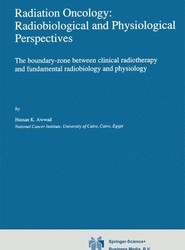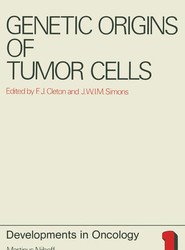(To see other currencies, click on price)
MORE ABOUT THIS BOOK
Main description:
The past twenty years have witnessed significant advances in the treatment of cancer by surgery and radiation therapy. Gains with cytotoxic chemotherapy have been much more modest. Of the approximately 900,000 newly diagnosed cases of cancer each year, 50010 result in death of the patient. The primary cause of these deaths is metastasis. Although the term metastasis was first coined by Recamier in 1829, only in the past ten years have there been intensive scientific investigations into the mechanisms by which tumor cells metastasize. What has emerged is a complex process of host-tumor cell interactions which has been termed the metastatic cascade. Due to the complexity of the metastatic process, the study of metastasis is multifaceted and involves elements of such areas as differentiation, en zymology, genetics, hematology, immunology, membrane biochemistry and molecular biology. The major objectives of this book were to present the most recent advances in our understanding of how tumor cells metastasize to secondary sites by the leading experts in the biology of tumor invasion and metastasis. We hope that this book will lead to new concepts for the treatment of subclinical metastatic cancer. The chapters in this book address both the basic science of metastasis and potential clinical therapies directed toward interruption of the metastatic cascade or toward eradication of subclinical metastases. Many relevant topics have been omitted due to space considerations and thus the topics included reflect the prej udices of the editors.
Contents:
1. The Cancer Problem Today.- 2. Present Status and Future Prospects for Treatment of Metastatic Cancer.- 3. A Critical Overview of the Metastatic Process.- 4. Experimental Models for Studying the Pathogenesis and Therapy of Metastatic Disease.- 5. Problems Posed for Cancer Treatment by Tumor Cell Heterogeneity.- 6. Multidrug Resistance and Metastasis.- 7. Polyamine Biosynthesis: A Target for Antimetastatic Therapy.- 8. Chemical Mechanisms of Modulation of Tumor Growth and Metastasis by Prostaglandins.- 9. Platelet-Tumor Cell Interactions as a Target for Antimetastatic Therapy.- 10. Mechanisms of Inhibition of Cancer Dissemination by Warfarin.- 11. Cancer Cell Procoagulants and Their Possible Role in Metastasis.- 12. Role of Growth Stimulatory Factors in Determining the Sites of Metastasis.- 13. Interleukins, Lymphokines and Lymphoid Neoplasia.- 14. The Use of Activated Macrophages for the Destruction of Heterogeneous Metastasis.- 15. Biological Response Modifiers as Activators of Natural Killer Cells: Potential Role in Treatment of Metastasis.- 16. Breast Cancer Diagnosis with Human Mammary Epithelial Antigens and the Prospective Use of Antibodies Against Them in Therapy.- 17. Chemotaxis in Tumor Cells: Possible Mechanisms and Their Implications for Therapy.- 18. Invasion of Vascular Endothelium and Organ Tissue in Vitro by B16 Melanoma Variants.- 19. Domains of Laminin and Basement Membrane Collagen which Play a Role in Metastases.- 20. Interaction of Malignant Cells with Substrata: Adhesion, Degradation and Migration.- 21. Proteolytic Enzymes in Tumor Invasion and Degradation of Host Extracellular Matrices.- 22. Cathepsin B-Like Cysteine Proteinases and Metastasis.- 23. Applications for Antimetastatic Therapies.
PRODUCT DETAILS
Publisher: Springer (Springer-Verlag New York Inc.)
Publication date: October, 2011
Pages: 448
Weight: 682g
Availability: Available
Subcategories: Oncology
From the same series
Dirk J. Ruiter
R. Verley
H.F. Seigler
Kenneth V. Honn
Franco M. Muggia
P. Hilgard
Noburo Kobayashi
James M. Church
L. Dogliotti
A. Giacosa
Seymour Garte
John Masters
Kintomo Takakura
B.A. Stoll
J. Mark Elwood
Laurence H. Baker
Laurence H. Baker
George D. Demetri
B.A. Stoll
A. Giacosa
Franco M. Muggia
Matthew J. van Zwieten
L.A. Liotta
Kenneth A. Foon
P.I. Reed
Paul H. Sugarbaker
Gabriel A. Kune
Frederick A. Valeriote
R. Ceriani
B. Lowenberg
D.G. Poplack
J. Bánóczy
Thomas R. Tritton
Miles P. Hacker
Aaron Polliack
B. Lowenberg
Pelayo Correa
Alexander H.G. Paterson
Franco M. Muggia
J. Aisner
Stephen T. Sonis
F.J. Cleton
Kenneth V. Honn
Stephen T. Sonis
Soldano Ferrone
Stephen B Howell
C.C. Tijssen
B.W. Hancock
B.W. Ongerboer de Visser
A.P.M. Heintz
B.A. Stoll
A.M. Ward
Daniel L. Kisner
Marvin A. Rich
J. Gordon McVie
J.R. Ryan
Marvin A. Rich
D.G. Poplack
Anthony J. Mastromarino
Frederick A. Valeriote
Marvin A. Rich
Laurence H. Baker
P.K. Pattengale
G.B. Snow
Frederick A. Valeriote














































































